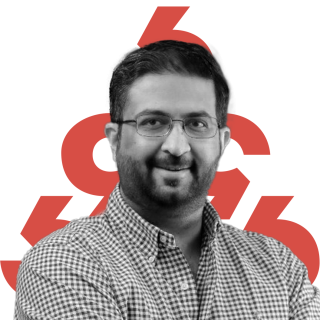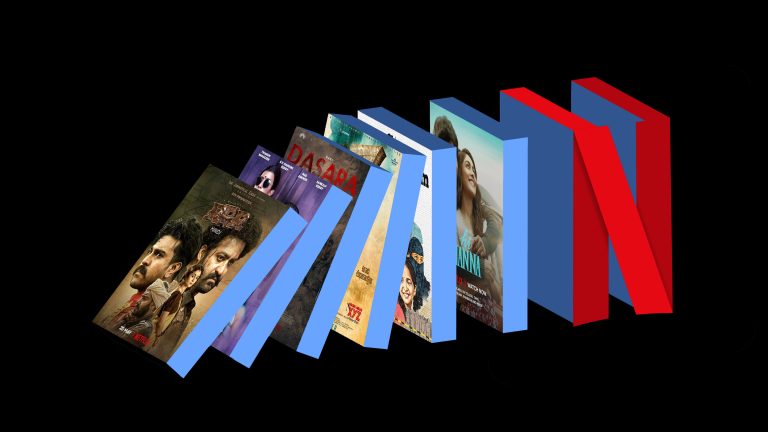Instant grocery delivery was all the rage in 2021. But critics of the model were quick to point out that quick commerce was broken from the start, and the cost of the fast service could never be recovered merely from the fees paid by consumers.
As the global economic downturn began and funding dried up, Pakistani quick-commerce company Airlift, which was primed to be the country’s first unicorn, shut down after burning through $85 million in 11 months. Now, as sobriety returns with founders and venture capitalists professing virtues of sustainable growth, Krave Mart is trying to rebuild from the rubble of Airlift.
Kassim Shroff is the co-founder of Krave Mart, a Pakistan-based quick-commerce startup, founded in 2021, that has raised $6 million till date. Prior to co-founding Krave Mart, Shroff was the chief people officer at the Alibaba-owned e-commerce firm Daraz. Over four years, Shroff played a central role in scaling Daraz’s reach from handling 10,000 orders to 4 million orders when he quit in 2021.
This interview has been edited for clarity and brevity.
The collapse of Airlift has put other quick-commerce founders in a spot. How do you build a differentiated and sustainable quick-commerce company?
We started working on unit economics from day one. We realized that delivering in 10 minutes would need a ton of money or you really cannot be positive unless you have hundreds of orders flowing every minute. We started increasing our delivery time, and now, we do between 30- to 40-minute delivery timelines.
Our model was built on convenience. Our assortment was the number one key. Since we are focused on profitable growth, we haven’t opened like 80 or 100 stores. We have 22 dark stores. We plan to have 25. But 22 is what we’re at, as of today, and 10 of them are positive. So, almost 50% of our business is positive.
Operationally, we do not lose a single dollar in delivery. We’re very proud of that. Airlift was doing a 1% margin on a $7 million gross merchandise value (GMV) — total sales. We’re doing a million dollars in GMV a month, on a 26% margin in November 2022. There’s a huge difference in how we built the business where 75 to 80% of our users pay delivery fees.
Our prices are still competitive because we’re now focused on private labels. We have started building our own brands. We are launching eggs, bread, bakery items, sugar, etc. The way we see the business is very different. I mean, we raised money. We have over 60% of money still in the bank.
Do you still have conviction that customer convenience trumps pricing pressure?
Convenience is necessary and people pay for it, but one needs to be price-competitive. Everyone wants good and cheap stuff. [The way to achieve it is by] building your own brands and you have more room for margins. You do not increase your margins by compromising on the health of the business. You increase your margins by increasing categories which have very high margins, like fruits and vegetables. I mean, why increase the price of Pepsi? Instead, increase the share of fruits and vegetables, and your business will automatically be better. Forty percent of our orders have one fruit and vegetable item. By next year, we want to have 80% orders having one fruit and vegetable item every single day.
Would quick commerce always remain a metro-only phenomenon, or is there a long tail to this business?
The FedEx CEO said: “Density is our destiny.” That’s my thinking as well. In tier-3, 4, 5 cities, there’s no density. Karachi, Lahore, Islamabad, and Rawalpindi are the tier-1 cities in Pakistan that have 70% of the population. The smaller ones are maybe 500 cities, which have less than 10% of the population. There are 150 million people in Karachi, Lahore, Islamabad, and Rawalpindi. Let me just first crack that.
Many say that customers don’t want all items to be delivered in 10 minutes. Instead, what they expect is a wider assortment. Is that thesis true?
Hundred percent. When we were doing 10-15 minutes’ delivery, the average items per basket were three, now it’s 11. People are ordering three times more because we worked on our assortment, we went from 1,400 SKUs — or stock-keeping units — to like 2,500 SKUs. We doubled down and we knew that in order to get this, we needed to focus on assortment. People want things fast, but they want good quality, and being able to get everything together.
What should be the cart value for you to be able to make margins and be profitable?
In Pakistani rupees, it is 1,200 rupees [$5.34]. You need a minimum of three to five items to build that basket. So if you look at our app, how we show what category, how we want to build the basket, it is designed that way.
One other important aspect when it comes to margins is building the right basket. That’s the number one thing we learned from [the] Daraz and Foodpanda experience. What happens is, when promotion seekers come, they start buying those categories where the discount from the distributor is not as high. Airlift had that problem; I mean, the whole world faces the promotional discount seekers.
Our vouchers don’t work on low discount categories such as oil, tea, sugar. So the promotion seekers don’t come to buy because it’s not beneficial for them. What we did early on is, ensure our basket has a good mix of snacks and beverages, which lead to higher margins.
Then, the most important thing: When you make a business plan, you say these many people will pay, and we’ll collect 99 rupees [as] shipping fees. But the important thing is, how many people are paying that 99 rupees? For us, 75% of the people pay shipping fees, which is why our margins are better than the rest.
What is your execution plan over the next year and a half?
We want to grow the basket size, grow fresh fruits and vegetables’ assortment, and private labels.
By the end of March 2023, 50% of orders will have one item of private label. That’s the target that we’re going [towards]. Right now, we’re at 5%. We’re introducing lentils, bread, eggs, bakery stuff, rice, sugar — all these items. So, instead of having it from a brand, which gives me 15% margin, now, with my private label sugar, I will have 25% margin. In terms of growth, Karachi, Lahore, Islamabad, and Rawalpindi are what we will focus on for the next 12 months. We will open up more dark stores here. But for now, five stores have reached full profitability, 10 have reached half, and the remaining five have reached 25% [profitability].




